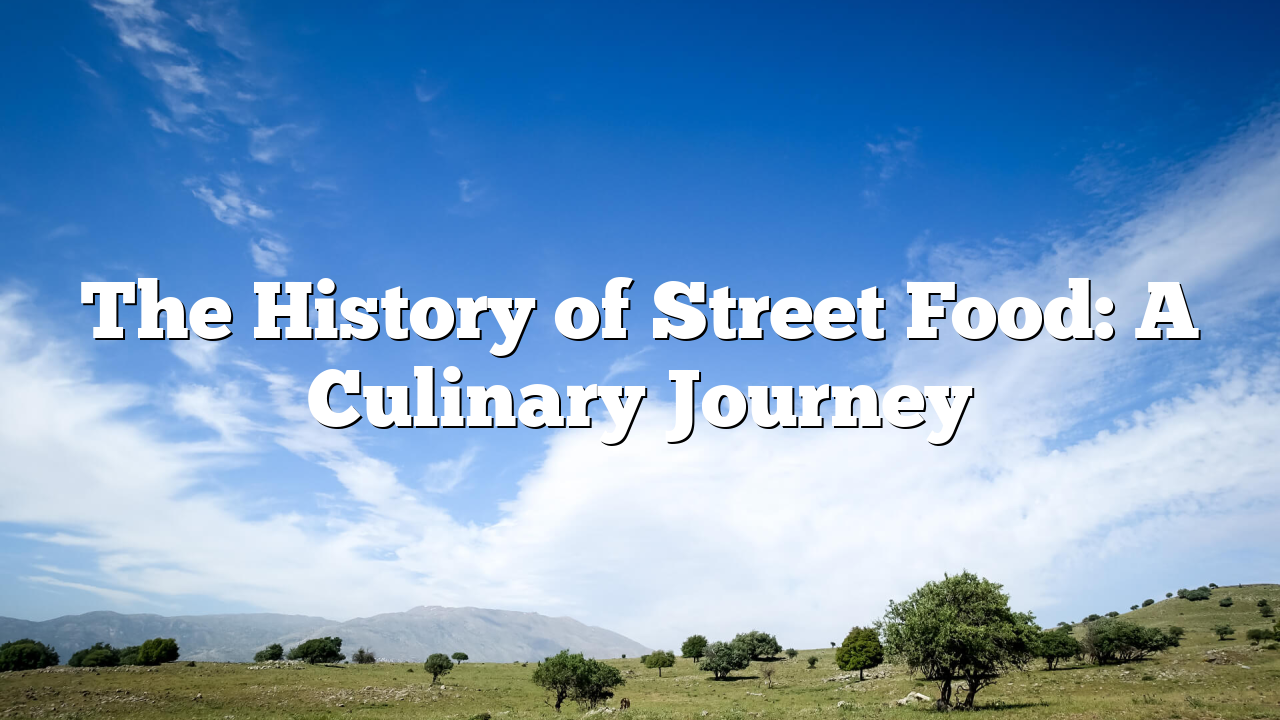Street food is more than just a quick bite—it’s a cultural experience that reflects the traditions, history, and flavors of a region. From the bustling night markets of Asia to the taco stands of Mexico, street food has been a vital part of human civilization for centuries.
In this article, we’ll explore the origins of street food, its evolution, and how it continues to shape the global food scene today.
1. The Origins of Street Food
Street food has existed since ancient times, providing affordable and convenient meals for people on the go.
🏺 Ancient Civilizations
Ancient Egypt – Archaeologists found evidence of food stalls selling bread and grilled meat in Thebes.
Ancient Greece & Rome – Vendors sold fried fish, bread, and stews in busy marketplaces.
China (Song Dynasty, 10th-13th Century) – Street vendors offered dumplings, noodles, and skewered meats.
Street food was especially popular among the working class, who often didn’t have kitchens at home.
2. Street Food in the Middle Ages
During the Middle Ages, street food was a necessity for city dwellers and travelers.
🏰 Europe 🕌 Middle East & Islamic Empires 🗿 South America (Aztecs & Mayans) – Corn-based dishes like tamales and tortillas were common.
These traditions continued into the modern era, evolving based on local cultures and available ingredients.
3. The Rise of Modern Street Food (19th-20th Century)
As cities expanded and transportation improved, street food became even more popular.
🚂 Industrial Revolution 🌭 New York in the 19th Century 🍜 Asia’s Street Food Boom – In places like Thailand, China, and Japan, street food became a daily ritual.
During this time, food carts, trucks, and pushcarts became common in cities worldwide.
4. Iconic Street Foods Around the World
Every country has its own beloved street foods. Some of the most famous include:
🇲🇽 Tacos (Mexico) 🇮🇳 Pani Puri (India) 🇹🇭 Pad Thai (Thailand) 🇺🇸 Hot Dogs (USA) 🇯🇵 Takoyaki (Japan) 🇹🇷 Döner Kebab (Turkey) – Grilled meat served in bread with vegetables and sauces.
These dishes showcase the diverse flavors and ingredients used in global street food.
5. The Impact of Street Food on Culture & Economy
Street food plays a huge role in society.
🍛 Economic Importance 🌏 Cultural Exchange 🚶 Accessibility – Affordable meals for people from all walks of life.
Many famous chefs, like Anthony Bourdain, have praised street food for its authenticity and cultural value.
6. The Future of Street Food
Street food is evolving with new trends:
🛵 Delivery & Online Orders 🌱 Healthier & Sustainable Options 🤖 Street Food & Technology – Automated kiosks and robotic food vendors are emerging.
Even with bengkulutoto , street food will always be about delicious, affordable, and convenient meals.
7. Conclusion: Street Food Is Here to Stay
From ancient civilizations to modern cities, street food has always been a part of human culture. It brings people together, supports local economies, and keeps traditions alive.
So next time you travel, skip the fancy restaurants and try the street food—it’s where the real flavors of a country can be found! 🍢🌎
The History of Street Food: A Culinary Journey











Leave a Reply